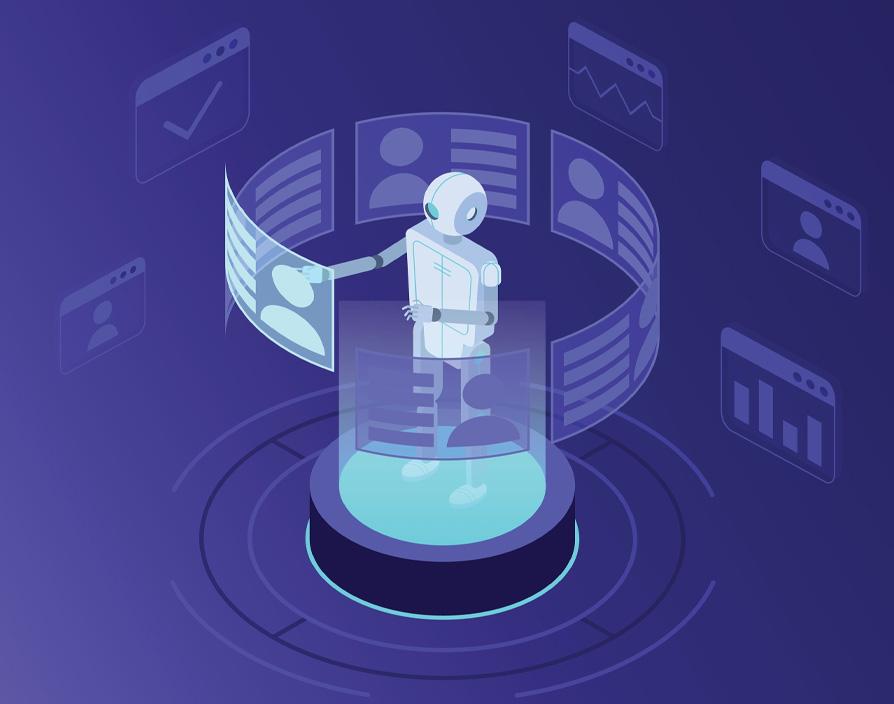With its unrivalled capacity to enhance and streamline business processes, it is no surprise that one fifth of companies are already using AI solutions – a number predicted to soar in the coming years.
HR is one area in particular where AI can unleash a tidal wave of transformation. Indeed, tools driven by machine learning have unparalleled abilities to process vast amounts of data, identify patterns the human eye may overlook, and make informed, split-second decisions. From assisting with talent acquisition and employee training, to enabling personalised employee benefit initiatives, such as vital financial wellbeing support, the benefits AI can offer the sector are truly limitless.
In fact, as AI is now at the forefront of the race to innovate in the sector, it is vital that HR teams seeking to optimise their workflows and create positive working cultures prioritise understanding and harnessing such technology, leaving no stone unturned.
AI has quickly become an essential tool in the HR world
While AI usage in business is not yet ubiquitous, it has already become an invaluable tool in the HR world.
One prominent example of its usage is in talent acquisition, which has undergone a remarkable, AI-driven shift. Previously, sifting through hundreds of applicants was a lengthy manual task, but by using automated AI tools, HR managers can now pinpoint the most suitable profiles for a position within seconds. Such tools not only save vast amounts of time in the early stages of the recruitment process but can also cut hiring costs by up to 30%, so the business case for AI is undeniable.
Moreover, AI also brings an operational boost to monitoring employee progress, productivity, and feedback. Precise tracking and analysis of employee performance and behaviour with AI tools can reveal critical insights regarding staff conduct and wellbeing, on both a micro and macro level. Such a tech-led monitoring process enables more unbiased, objective employee evaluations, allowing managers to pinpoint any potential issues or opportunities for improvement as they arise within the workforce.
Similarly, AI tools can be deployed to manage and conduct employee surveys. Such tools can be instrumental in collecting and processing critical feedback on important issues including financial wellbeing, job satisfaction or benefits packages. HR managers can use the insights gathered to identify larger patterns of feedback across a workforce, as well as to target individual workers who may require specific support.
What’s more, enhanced employee training and development can be facilitated through AI-driven tools. Delivering tailored training programmes that respond to individual needs and preferences, these programmes enable employees to add to their skill sets and equip them with the tools they need to excel in their role.
Gaining popularity in the HR sphere for their efficiency and user-friendliness, AI-powered chatbots have quickly become an indispensable tool. A round-the-clock, virtual HR assistants, chatbots can respond to simple employee queries relating to a company’s HR policies, employee rights, benefits, and financial wellbeing whenever they need them.
As such, they are not only highly effective at facilitating convenient access to guidance, but they also lessen the workloads for HR professionals as well. Indeed, research shows that chatbots can save businesses up to 40 labour hours per week. In turn, this will allow HR professionals to give greater focus to strategic decision-making, innovation and more significant challenges that require a human touch.
With boundless opportunity comes potential risks
Clearly, AI offers a plethora of ripe opportunities to optimise HR workflows and enhance employee experiences.
Despite this, as with any technological advancement, the rise of AI comes with its own unique set of concerns that decision-makers and HR professionals must be aware of and respond to. For instance, maintaining data security remains a key issue – without thorough safeguarding, AI-driven systems can be highly susceptible to breaches.
Like humans, AI tools are not immune to making errors. Worryingly, hiring software, for example, has been found to unwittingly reject qualified candidates due to machine-learned biases or oversights – some reports have even highlighted instances of AI-driven hiring programs that can perpetuate biases related to race, class, and gender. Other excellent candidates lacking one or two trivial criteria listed on a job description may also be unjustly overlooked due to AI’s exacting standards.
Above all, such issues outline the need to ensure fairness and impartiality in AI algorithms. A guarantee of this is yet to be achieved, but this issue can, in part, be addressed by ensuring that the engineering team behind the AI program is as diverse as possible.
Despite these risks, there is no need to put AI implementation on hold. Instead, human supervision and evaluation will remain essential in using – and more importantly, improving – AI solutions, until the issue is resolved. Using AI tools alongside conventional HR practices to spot teething issues is a great first step. After all, without using the tools that are already out there and spotting any issues that arise, how can we expect them to improve?
Naturally, another consideration of implementing state-of-the-art AI tools is the hefty price tag. On average, companies’ spending on AI ranges from £9,500 per small business and £380,000 per medium business, posing challenges for those with limited HR budgets – despite the potential long-term cost-cutting benefits.
Furthermore, AI-powered systems may lack the human touch that employees often seek. Although no other tool can supply information and support with the speed and accuracy of AI, machine learning cannot reproduce the depth of understanding, emotional intelligence and compassion provided by experienced HR professionals.
Sometimes, human connection should be prioritised over AI. Indeed, when it comes to sensitive topics like financial or mental wellbeing, most employees appreciate the opportunity to have genuine interactions with empathetic human beings.
AI is a powerful tool – not a substitute
In my view, AI is an incredible tool that will undoubtedly transform the HR sector and optimise workflows. For now, however, it cannot provide the comprehensive assistance that businesses need to properly support their staff on its own. As always, a ‘human’ dimension is a vital aspect of the human resources field, especially when tackling complex topics like financial wellbeing. So, we must use AI as a tool, not a substitute for people.
Largely, this is because AI is being held back by its inability to replicate human intuition and empathy. As businesses rightly embrace AI as one method for innovating and streamlining practices, they must appreciate the prevailing importance of human involvement in HR and financial wellbeing support.
Using platforms that employ AI-powered functions, which can be monitored by HR professionals, is a forward-thinking move for businesses. Such solutions are already available, helping workers to manage their financial wellbeing through educational resources, savings tracking tools and access to independent financial advisers, alongside AI-powered chatbots that can rapidly answer simple HR or financial wellbeing related queries.
To wrap things up, it’s obvious that a new dawn is upon us as AI revolutionises HR and financial wellbeing, ushering in a promising future for those businesses willing to harness its potential. And, although dangers do exist, as with any new technological innovation, awareness and proactive management will go a long way towards mitigating the risks. Ultimately, a harmonious blend of human and AI-led HR solutions will be the key to a robust, future-proof HR strategy.
Share via:








































